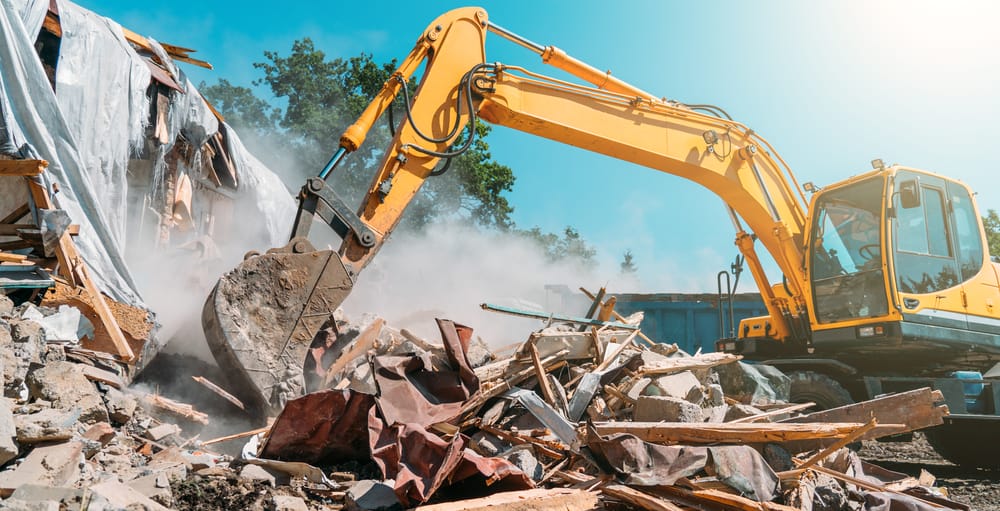Construction sites are dangerous workplaces, and those who are employed on them face various hazards every day. However, workers are not only subjected to dangers on the ground — they can also face significant risks from falling debris, tools, and objects. If proper precautions aren’t taken to secure items from above, they can strike a worker below, causing them to sustain serious injuries. In such cases, you may be entitled to file a personal injury action against a third party to recover the damages you suffered.
Common Causes of Falling Debris on Construction Sites
Many different types of debris are created on a construction site during the course of a project. Construction debris can include heavy materials such as concrete, wood products, brick, clay, tiles, glass, metal, wiring, shingles, steel, and other scraps. When these materials are not properly disposed of or secured, they can fall from above and strike a worker below. Critically, “struck by” accidents are included in OSHA’s “Fatal Four,” accounting for a significant number of worker fatalities.
Common causes of falling debris on a construction site can include the following:
- Failure to use safety devices to catch debris and objects from above
- Improperly stacking materials
- Malfunctioning machinery or equipment
- Incorrect use of tools
- Failure to properly train workers
- Improperly stored materials or tools
- Failure to conduct regular inspections
- Improper lifting techniques
Notably, New York’s Scaffold Law doesn’t only protect workers who work at elevated heights. It also applies to injuries caused by falling objects. Under this statute, a contractor or property owner can be held absolutely liable for a gravity-related accident. In other words, it is not necessary to establish negligence to prevail in a personal injury claim involving falling debris — a victim must only demonstrate that a violation of the statute occurred.
Recoverable Damages for a Falling Debris Accident
Falling debris on construction sites can pose a significant risk to construction workers, even if they wear hard hats or other safety gear. Depending on the type of object and force of impact, debris that falls from above can cause a worker to sustain a wide range of injuries. These can include concussions, skull fractures, traumatic brain injury, neck injuries, broken bones, lacerations, internal bleeding, paralysis, and fatality. A worker might require extensive medical treatment following an injury caused by falling debris, including hospitalization, surgical intervention, and physical rehabilitation. In addition, a worker could incur out-of-pocket expenses in connection with the accident and be required to take time from work as they recover.
Importantly, an injured construction worker isn’t only limited to Workers’ Compensation benefits to help pay their medical bills and lost wages. By filing a personal injury lawsuit, a worker can recover the full extent of their economic and non-economic damages. Monetary recovery in a personal injury action can include unreimbursed medical expenses, lost earnings, future lost wages, out-of-pocket costs, and pain and suffering damages.
In cases where the defendant’s actions were particularly egregious, punitive damages may also be available. These damages are meant to punish the defendant and deter others from engaging in similar conduct.
Contact an Experienced New York Personal Injury Attorney
If you were injured on a construction site due to falling debris, it’s vital to have the representation of a personal injury attorney who can help you navigate the process of filing a lawsuit to recover your damages. The Edelsteins, Faegenburg & Brown, LLP is a New York personal injury firm dedicated to fighting for construction accident victims who have suffered injuries on job sites and work diligently to secure the compensation they deserve. Handling every case with proficiency and skill, we have a long-standing track record of obtaining substantial settlements and verdicts for our clients. Contact us to schedule a free consultation at (212) 425-1999 today.

